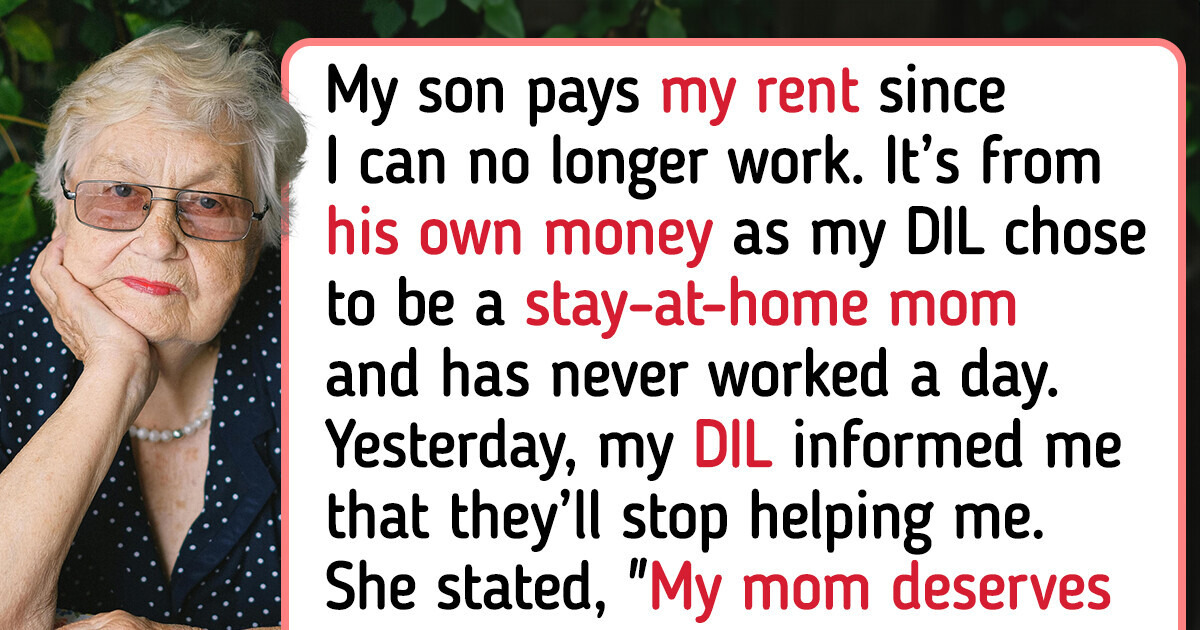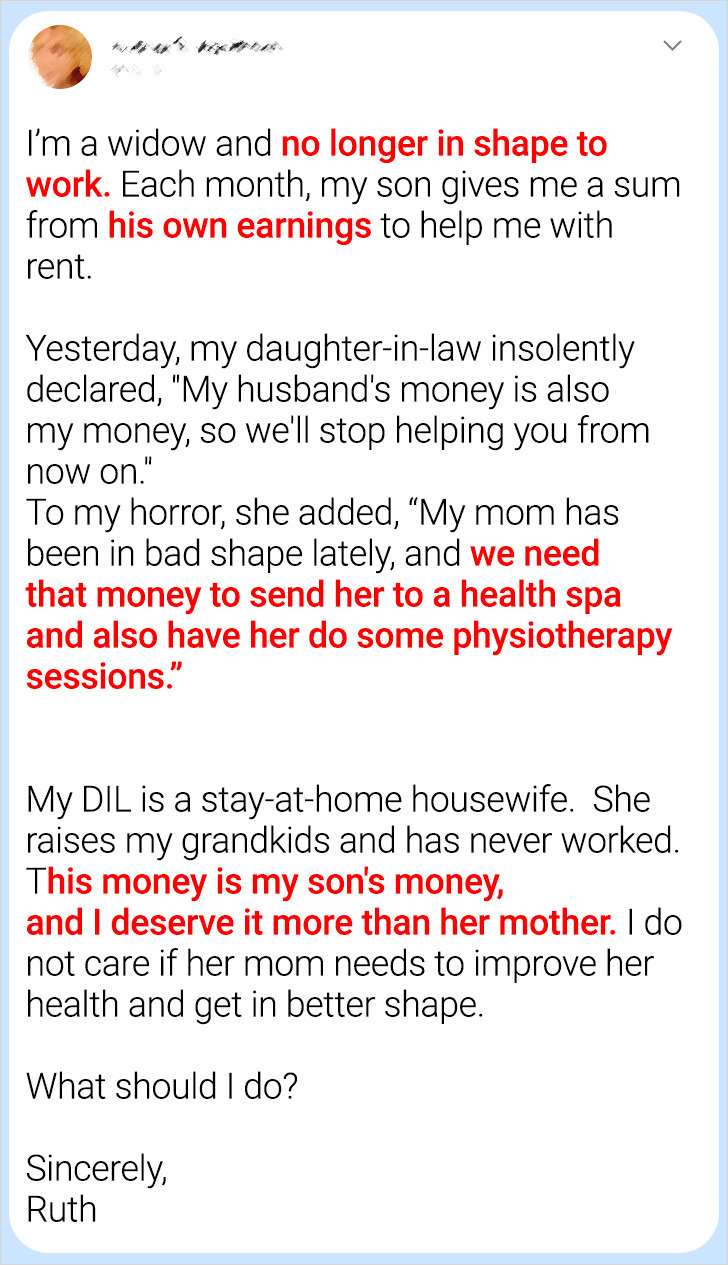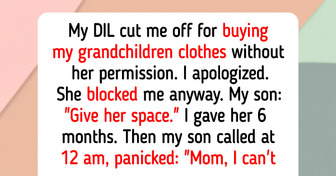Your son and his wife are an entity He works and she has chosen to run the house and look after the children. This is their perogative. The money that your son earns is for the support of his home. Should they have excess income which they wish to share with other family members that is lso their perogative. They may also decide to invest it in order for them to be able to support themselves when no longer in employment. You have no lam on your so or his earnings once he has left home as an adult. I do not agree with the way in which your DIL hs handles the situation. She appears to be vindictive and petty and obviously does not have a good relationship with you. If you require assistance with your rent I would suggest that you either look for cheaper accommodation or reach out to establishments who assist elderly people
My Son’s Money Should Go to Me, Not His MIL

The emotional turmoil a mother experiences when she feels disconnected from her child can be profound, particularly when financial matters exacerbate the situation. Ruth is navigating a delicate scenario where her son has shifted his financial aid toward his mother-in-law. She firmly believes she merits her son’s support more and has turned to us for advice.
The letter of Ruth:

not it's not his job to keep you if he is married that should be his priority to help you a little I'd say yes but if you expect him to help you instead of prioritising his own family you are selfish
Thank you for entrusting us with your situation, Ruth! Here are some suggestions we hope will be helpful to you.
Maintaining open communication is key.
Start a composed and respectful dialogue with your son and daughter-in-law. Share your sense of astonishment and disillusionment upon discovering the redirection of financial assistance towards her mother’s health spa.
Convey the importance of this support for your sustenance and welfare. Stress the significance of transparent communication and the necessity to explore a resolution that acknowledges the needs and constraints of all involved.
Explore mediation for resolution.
You might want to think about bringing in a neutral third party, like a counselor or mediator, to help facilitate a productive conversation between yourself, your son, and your daughter-in-law.
By having a mediator involved, they can assist in navigating the emotions at play and steer the dialogue toward a fair outcome. This strategy can reduce misinterpretations and encourage empathy for each other’s viewpoints, ultimately nurturing peace and understanding within the family.
Consider seeking different forms of assistance.
Look into other options for financial help or resources that you can access. This might involve government aid, local programs, or networks for widows.
By expanding the sources of support you rely on, you can lessen your reliance on your son’s income and retain control over your financial well-being.
Seek legal help.
If the issue persists without resolution, and you believe your rights are being overlooked, consult with a legal expert who specializes in family law or elder rights. They can evaluate your circumstances, offer advice on your legal entitlements concerning financial assistance from your son, and examine possible options for action or discussion.
Roberta found herself deeply troubled by her daughter-in-law’s actions, echoing Ruth’s experiences. When she expressed her desire to move in with her son, her daughter-in-law reluctantly agreed, but imposed conditions that Roberta found to be belittling. For the complete narrative, please visit the link provided.
Comments
You're not entitled to his money. HOWEVER, You should have been given a few months notice to give you a chance to find another resource. Or scale down the rental to a more affordable place, apply for low income housing assistance. What would you do if he hadn't been able to help you all of this time? DIL if she was that abrupt either is angry that money has been not there for them, or upset about having to be the one to tell you and so acted aggressively to put off a fight. They have a right to have a stay at home parent. Her parent also matters. If she's having a health crisis, then that is going to be a priority.
Related Reads
I Gave My House to My Son — He Betrayed Me in a Horrific Way

I Nearly Ruined My Parents’ Marriage After What I Overheard

My MIL Tried to Get Me Pregnant and I’m Furious

20+ Shocking Finds People Had to Share With the Internet

People Talk About 10 Strange Situations They Can’t Explain (Some Sound Like Movie Scripts)

Pierce Brosnan’s Wife Stuns in New Photos and Shocks Fans With Her Transformation

20 Moments When Kindness Stepped In Like a Guardian Angel

15+ People Who Found Out Their Partner Was Living a Lie

I Refused to Beg My DIL for Forgiveness—Then Suddenly She Needed Me

I Refuse to Let the Former Owner Get Married in My Backyard—My Kindness Stops Here

My Husband Made Me Care for His Sick Mother, So I Served a Payback He Won’t Forget

I Refused to Cover My Grandson Tuition—I’m Done Being Humiliated by Him




